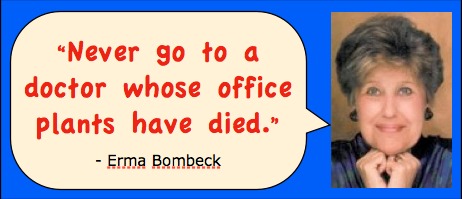Since 2014, doctors have been stymied by a medical mystery: People, mostly children, were coming down with a previously unknown, poliolike illness that causes paralysis. How Doctors Think offers direct, intelligent questions patients can ask their doctors to help them get back on track. Groopman draws on a wealth of research, extensive interviews with some of the country's best doctors, and his own experiences as a doctor and as a patient. How Doctors Think Jerome Groopman, MD Chapter 9. Marketing, Money, and Medical Decisions Chapter 10. In Service of the Soul Melanie Swan MS Futures Group How Doctors Think Clinical Judgment and the Practice of Medicine Kathryn Montgomery. How Doctors Think defines the nature and importance of clinical judgment. Although physicians make use of science, this book argues that medicine is not itself a science but rather an interpretive practice that relies on clinical reasoning. Many patients see doctors surrounded by an aura of infallibility. Well trained, well paid, and well dressed in the ubiquitous white coat, physicians are usually assumed to have authority. How Doctors Think defines the nature and importance of clinical judgment. Although physicians make use of science, this book argues that medicine is not itself a science but rather an interpretive practice that relies on clinical reasoning. How Doctors Think is a window into the mind of the physician and an insightful examination of the allimportant relationship between doctors and their patients. In this mythshattering work, Jerome Groopman explores the forces and thought processes behind the decisions doctors make. At Think each of our doctors lead a team of people dedicated to your care. We have doctors of internal medicine and family physicians who are all accountable to you our patients. His How Doctors Think the same title as Montgomerys book but very different between the covers is a collection of stories from Groopmans own experience that illustrate the complexi How Doctors Think is a window into the mind of the physician and an insightful examination of the allimportant relationship between doctors and their patients. In this mythshattering work, Jerome Groopman explores the forces and thought processes behind the decisions doctors make. [Jerome E Groopman A physician discusses the thought patterns and actions that lead to misdiagnosis on the part of healthcare providers, and suggests methods that patients can use to help doctors assess conditions more. Pat Croskerry, visiting professor from Dalhousie University, provides us with an engaging look into the mind of a physician, with discussions about intui How Doctors Think is a window into the mind of the physician and an insightful examination of the allimportant relationship between doctors and their patients. In this mythshattering work, Jerome Groopman explores the forces and thought processes behind the decisions. A vaccine for avoiding multiple sclerosis has moved a step closer, as doctors believe they have discovered the cause of the disease. MS develops following two separate common infections which. Doctors get about 14 as much training on drugs as pharmacists do. Like any job, there are some people who have ego problems and think they are better than everyone else, and there are some doctors who think they know everything. Egyptian Doctors Think This Torturous Exam Can Detect Chronic Homosexuals Anal exams are performed by police in many countries that criminalize homosexuality and they base their work on 150yearold European science. com: How Doctors Think ( ) by Jerome Groopman and a great selection of similar New, Used and Collectible Books available now at great prices. The book How Doctors Think is a great reminder for physicians on common cognitive errors and how to avoid them as much as possible. Description of How Doctors Think by Jerome Groopman PDF How Doctors Think is one of the best books for medical students and physicians. How Doctors Think reveals a profound new view of twentyfirstcentury medical practice, giving doctors and patients the vital information they need to make better judgments together. Download the free Scribd mobile app to read anytime, anywhere. How Doctors Think is a window into the mind of the physician and an insightful examination of the allimportant relationship between doctors and their patients. In this mythshattering work, Jerome Groopman explores the forces and thought processes behind the decisions doctors make. Groopman's How Doctors Think is more accurately a study of when and why doctors sometimes don't think. The book is intended to inform patients of a fact of which they are probably already aware: their doctors are human and will make mistakes, and as a result, patients who partner with their physicians are more likely to get better care. What Do Doctors Really Think About Medical Marijuana? Support for medical marijuana is growing in America, with eightyfour percent of adults saying they support giving doctors the right to prescribe it. Fiftythree percent of Americans support recreational use of cannabis, while twentythree states and Washington DC have already passed laws allowing doctors to recommend the drug to patients. Jerome Groopman, a staff writer at The New Yorker, has written a book about how doctors make decisions regarding their patients. As a repeal and replacement of the Affordable Care Act dominates politics, doctors are being left to figure out what's best for their patients. How Doctors Think is a window into the mind of the physician and an insightful examination of the allimportant relationship between doctors and their patients. In this mythshattering work, Jerome Groopman explores the forces and thought processes behind the decisions doctors make. How Doctors Think is a 2007 work of nonfiction by Jerome Groopman, chair of medicine at Harvard Medical School and chief of experimental medicine at Beth Israel Deaconess Medical Center in Boston. He is also a writer for The New Yorker magazine. The problem with this is that not all clinical data is useful or relevant. For example, the knowledge that a female patient's greatgrandmother had an. I n How Doctors Think, Groopman analyzes how physicians come to make. diagnostic and treatment decisions, and. how this proce ss can be improved up on. He approaches this in a casebased. How Doctors Think by Jerome Groopman, is a book that explores the topic of the manner by which physicians are taught to think, how they arrive at correct and incorrect diagnoses and how the personality of the physician, the patient and the interaction. How Doctors Think is mostly about how these doctors get it right, and about why they sometimes get it wrong: most errors are mistakes in thinking. This is an honest, touching, and insightful look at the paradigms with which doctors make diagnoses and decisions, with examples of when this really works and when it fails and why. It is not really that doctors think anything of chiropractors but rather that chiropractic techniques have not been shown to work in a scientific manner. This would be relatively harmless but there are two potential dangers to chiropractic. Most physicians already have in mind two or three possible diagnoses within minutes of meeting a patient. Three doctors, specializing in pediatrics, biology, and psychiatry, are criticizing what they say is the reliance on feelings over facts when it comes to studying and treating children who think. How Doctors Think This book, while written for the layman, should be required reading for every doctor. The author uses interesting cases to illustrate the many pitfalls that can occur in a physician's thinking. In How Doctors Think, The New Yorker staff writer and Harvard professor of medicine researcher Dr. Groopman offers a distinctive look into the structure of Big Medica in search for what exactly is the type of mindset Doctors employ when practicing their jobs. Many doctors give up their own family life to overextend themselves to you. And theyre kind of a mess after years of doing that. Id like to see more patients have more empathy for doctors. Any condition that causes painful symptoms is obviously quite frustrating, but imagine how magnified that frustration becomes when a doctor expresses that the pain is just in your head. Such is the case with the following 10 conditions, all of which cause painful and sometimes debilitating. How Doctors Think offers direct, intelligent questions patients can ask their doctors to help them get back on track. Groopman draws on a wealth of research, extensive interviews with some of the countrys best doctors, and his own experiences as a doctor and as a patient. Titled the American Health Care Act, the bill aims to repeal and replace the Affordable Care Act, overhauling the healthcare system. The bill tries to preserve some of the wellregarded aspects of. This elegant, toughminded book recounts stories about how doctors and patients interact with one other. In the hands of Jerome Groopman, professor. Teaching how doctors think is the fundamental premise of the new course, which represents the first HMS executive education course for the global Internet company based in Mountain View, California. How Doctors Think offers direct, intelligent questions patients can ask their doctors to help them get back on track. Groopman draws on a wealth of research, extensive interviews with some of the country's best doctors, and his own experience as a doctor and as a patient. How Doctors Think is written for both patients and physicians. Groopman provides examples of the types of quest ions and strategies that patients or their family members. Or, when doctors decide to give an opioid, are they giving more pills than they need to? I think research in these areas would help us understand how to educate patients and their doctors to use. Teaching Doctors to Think Like Patients Forward arrow icon An arrowing pointing forward, usually indicating forward movement, or the ability the share something via social media. How Doctors Think reader reviews and comments, and links to write your own review (Page 3 of 3). As a thirdyear med student, I was doing an ER shift when the call came through our dispatch: 56yearold man, status epilepticus, being flown in from Yosemite, 10 minutes out. I watched the residents snap into a semiordered chaos. If How Doctors Think has one limitation, it is that Groopman tends to assume that wrong decisions were necessarily bad decisions. This is a reasonable assumption in many situations. This is a reasonable assumption in many situations..











